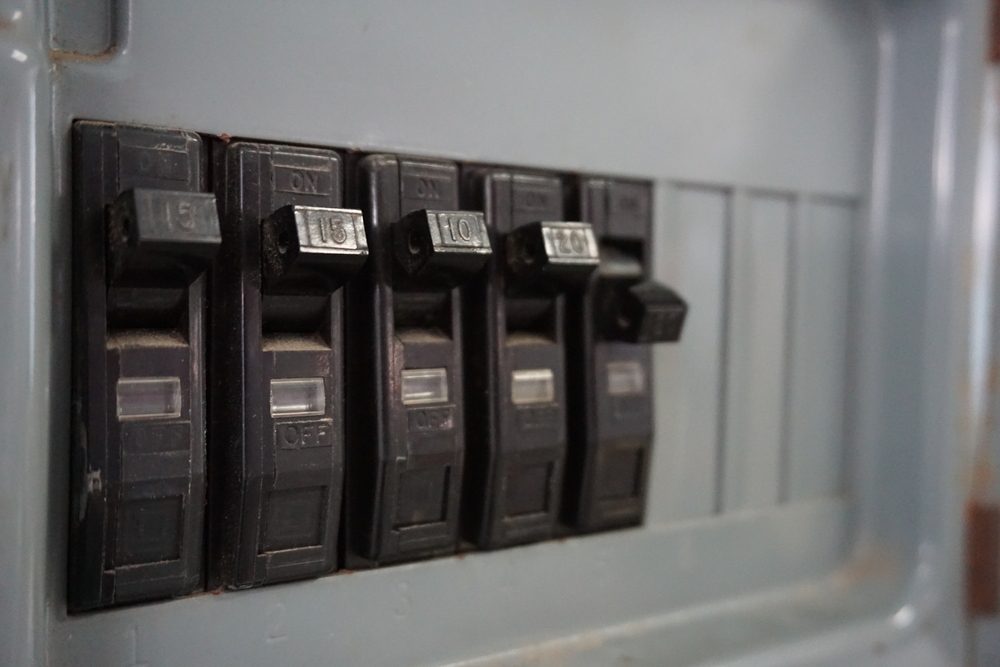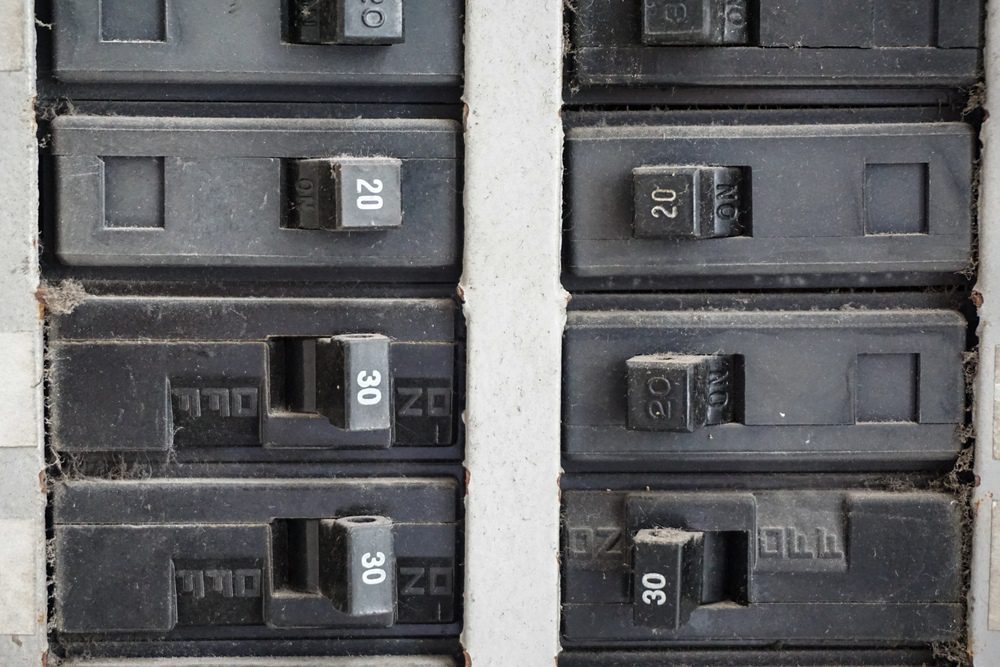
Does your dryer keep tripping the breaker? It’s a common issue in homes and the solution can be anything from a simple do-it-yourself (DIY) repair to needing to call in a local electrician. We have created an extensive outline of why your dryer keeps tripping the breaker, how to stop it from happening again, and the next steps you need to take.
Why Do My Circuit Breakers Keep Tripping When the Dryer Is On?
1. Check the Heating Element
We always like to start with the simplest solution. So, our diagnosis begins by checking the heating element in your dryer. A faulty heating element can cause your dryer to trip the breaker by shorting out its heating housing.
Here is how to check the heating element in your dryer:
- Ensure there is no power going to the dryer.
- Pull it out, remove its panels, and find the heating element. Its location varies based on your dryer’s model. Check your manual to find it easily
- Test the heating element using a multimeter by touching each probe to the terminals inside the heating element connector. It must have continuity to work.
If you test the heating element and the multimeter shows no continuity, you found your problem! If not, try the next step.
2. Look at the Drive Motor
Next, you will want to check for a faulty drive motor. It can short out if it’s not working, making your dryer continuously trip the breaker.
Check your drive motor with these steps:
- With the power turned off, remove the panels on your dryer.
- Locate the drive motor in your dryer.
- Using a multimeter, test it for continuity. This process is the same as we discussed earlier about checking your heating element.
If the dry motor does not have continuity, you’ll need to replace it. If everything still looks good, then we have a couple of other options.
3. Check the Terminal Block
Terminal block failure is less common than issues with your heating element or drive motor, but it’s worth checking if those two components appear to be working normally. If any wires attached to the terminal block become loose, they can short and cause your dryer to trip the breaker.
All you need to do to check your terminal block is inspect the wires for loose connections or arcing. You will likely have to replace your circuit breaker if you don’t find a problem with the terminal block.
Related: What Is the Difference Between Circuit Breakers and Fuses?
4. Replace the Circuit Breaker
If you check the components discussed earlier and are not able to find a reason why your dryer keeps tripping the breaker, your final option is replacing your circuit breaker. Your breakers can wear out over time, causing them to trip repeatedly.
While you can change many parts of your dryer by yourself, replacing a circuit breaker is a job for professional electricians. Installing a new circuit breaker is an extremely dangerous process if you’re not trained in how to do it.

Other Reasons Your Circuit Breaker Keeps Tripping
Let’s look at the four most common reasons why your breaker keeps tripping:
Electrical System Has a Short Circuit
One of the common reasons for a circuit breaker that won’t stop tripping is when your electrical system has a short circuit, meaning that a neutral and live wire is touching. This contact isn’t only an annoyance that trips your breaker, it can also cause those wires to overheat, creating a fire risk.
If you smell burning or notice a receptacle is discolored, you might have a short circuit. When you suspect a short circuit is your problem, unplug the appliance in question and have a licensed electrician troubleshoot the issue.
Circuit Is Overloaded
If you overload your electrical system by trying to draw more power than it is rated for, this may be the reason your circuit breakers keep tripping in your home. The breakers in your panel are designed to trip to prevent the wires from getting too hot and starting a fire.
You will notice similar symptoms as a short circuit if your circuit is overloaded, but you will also likely see lights flickering when you power on your appliances. The solution is to find a way to reduce the load on the circuit or have an electrician upgrade the electrical system to better suit your energy needs.
Related: Popular Types of Task Lighting for Homes
Power Surges and Arc Faults
If you experience a power surge or arc fault, the spike in voltage can damage your appliances. This spike can also happen when your power comes back on after an outage.
You can protect your appliances and electronics using surge protectors. Another option is to install a whole-house surge protector so that you no longer have to worry about power surges and arc faults caused by voltage spikes.
Ground Faults and Electrocution Hazards
Ground faults are short circuits that result in the electrical current going uncontrolled, tripping your breaker repeatedly. There is an even bigger problem with ground faults. They pose an electrocution risk.
If you touch an exposed wire, especially in wet or damp conditions, there is a chance of electrocution. You can prevent this hazard by having GFCI outlets that detect subtle changes in power immediately installed to protect you and your family.

Electrical Panel Upgrade and Repair Services
The electrical panel in your home should withstand years of use as long as it’s professionally installed and maintained. If your dryer keeps tripping your breaker, give our team a call at (770) 852-8504 to receive assistance. Our team of local electricians in Athens, GA is available to help you upgrade your electrical panel. We are committed to ensuring you maintain power throughout the winter and summer seasons.
In addition to offering support for damaged electrical panels, our technicians offer other types of electrical services such as lighting installation, ceiling fan replacement, wiring maintenance, and whole-house generator installation. Give us a call or book an appointment online to receive help with a defective electrical panel on your property.



